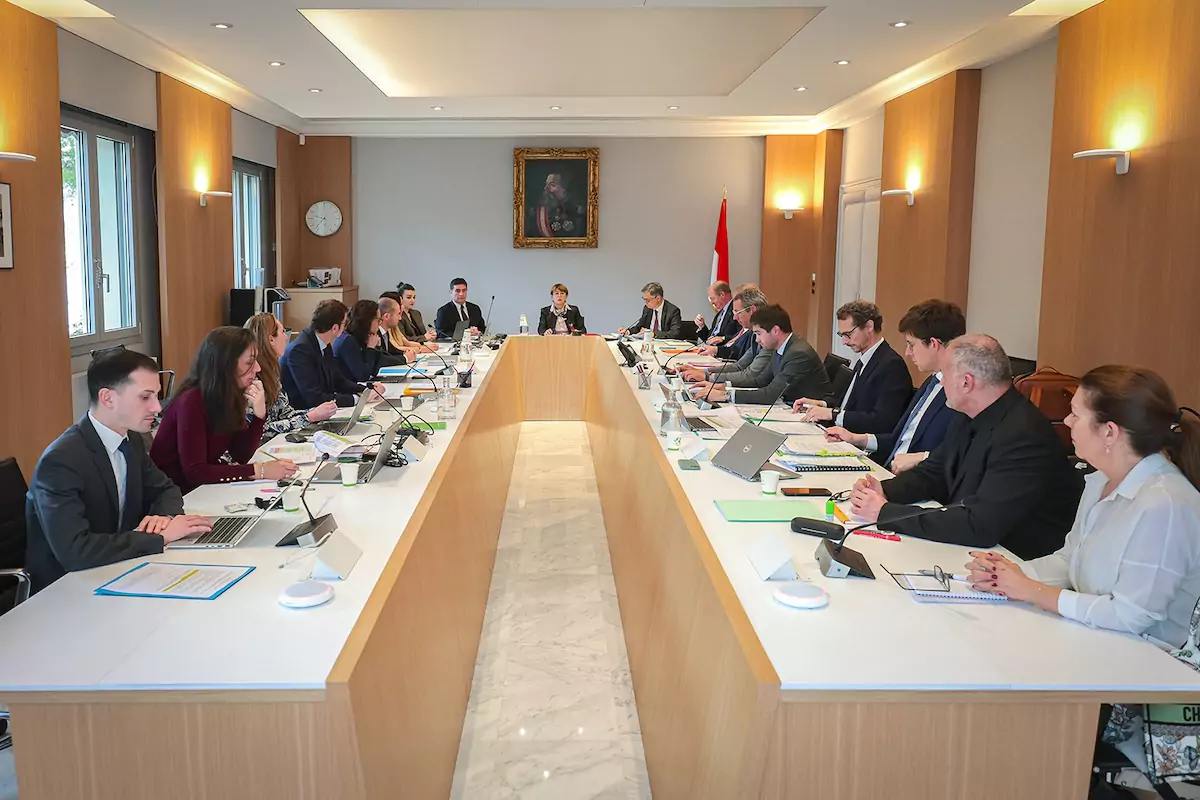In a key step towards implementing the recommendations of the Council of Europe’s anti-corruption body GRECO, the Principality of Monaco held the first official meeting of its newly formed Steering Committee on 28th March. The gathering, chaired by Isabelle Berro-Amadeï, Minister of Foreign Affairs and Cooperation and acting Minister of State, marks the latest move in Monaco’s broader efforts to enhance transparency, accountability and integrity within public institutions in the Principality.
The creation of this high-level committee follows GRECO’s Fifth Evaluation Cycle, which culminated in a critical report released in July 2024. The report commended Monaco for its early efforts, such as the introduction of an ethics officer, the formation of a risk mapping strategy and a draft whistleblower law, but also called for stronger oversight of high-ranking officials, more clearly defined regulations on employment after leaving public office and improved transparency in the operations of both the police force and the activities conducted under the authority of Prince Albert II of Monaco.
The newly established Steering Committee, formed by Sovereign Ordinance No. 11.092 on 18th February, is responsible for developing a comprehensive anti-corruption strategy tailored to Monaco’s institutional framework. This includes identifying targeted actions to implement GRECO’s recommendations. Composed of senior representatives from the judiciary, the police, the public administration and the offices of the Prince and Minister of State, the committee is set to deliver its first progress report by the end of 2025.
“Monaco remains committed to advancing its anti-corruption legislation in line with its institutional framework,” said the government in an official statement released on 28th March. “This dedication aligns with over a decade of consistent efforts and improvements in anti-corruption measures as part of previous GRECO evaluation cycles.”
During this inaugural session, Berro-Amadeï reiterated the significance of the committee’s mandate, describing it as “central to delivering concrete progress” and reinforcing Monaco’s commitment to transparency and public integrity. This builds on January’s meeting, where the committee adopted a detailed reform roadmap and dashboard to guide anti-corruption efforts through 2025.
With experts such as Marc Segonds and Gilles Duteil advising on the strategy, the Steering Committee is poised to lead Monaco’s institutional response to GRECO’s findings. Central to its mission will be not only the development of new legislative tools, but also the promotion of a stronger culture of ethics and accountability across all levels of government and law enforcement.
Read related:
Monaco defines anti-corruption priorities and sets 2025 timeline for GRECO reforms
Monaco Life is produced by a team of real multi-media journalists writing original content. See more in our free newsletter, follow our Podcasts on Spotify, and check us out on Threads, Facebook, Instagram, LinkedIn and Tik Tok.
Photo credit: Stéphane Danna / Monaco Communications Department
